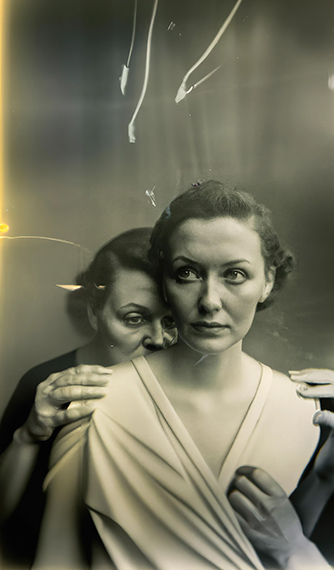
The Electrician (from the series Pseudmensia), 2022
Framed AI generated image (promptography) on paper with museum glass
68,3 x 40 cm
Unique piece
Monochromatic
Anuschka Blommers & Niels Schumm » Michael Bailey-Gates » Katie Burnett » Asger Carlsen » Robin de Puy » Boris Eldagsen » Emile Gostelie » Inez & Vinoodh » Nico Krijno » Anja Niemi » Pacifico Silano » Christopher Smith » Eva Stenram » K YOUNG » Tereza Zelenkova »
Exhibition: 29 Apr – 10 Jun 2023
Sat 29 Apr 17:00
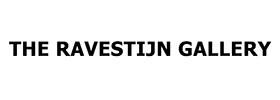
THE RAVESTIJN GALLERY
Oudelandsdijkje 9
1141 PH Monnickendam
+31 (0)20-
info@theravestijngallery.com
www.theravestijngallery.com
by appt.
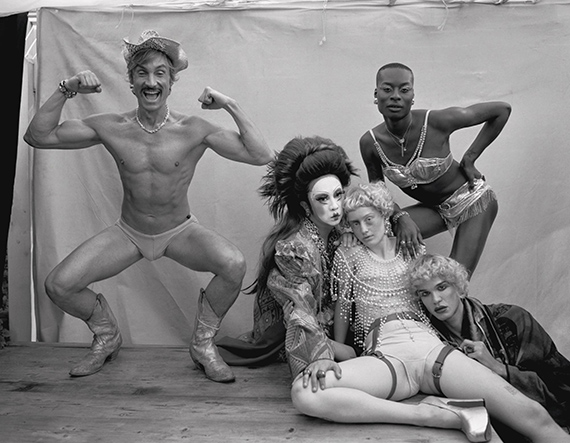
Porch, 2018
Archival pigment print on rag baryta paper, mounted, framed with museum glass
Available in two sizes, within the same edition of 5:
76,2 x 58,4 cm (30 x 23 inch),
114,3 x 87,6 cm (45 x 34,5 inch)
Edition of 5 plus 1 AP
A woman in a formal white gown glances sideways, her gaze steady and her expression neutral. A set of hands – the body to whom they belong cropped from the frame – tends to the garment’s draped fabric, as if carefully fitting a wedding dress. To the rear, an older woman rests a weathered hand on the younger woman’s shoulder; the expression she wears is more sombre – a mother preparing to let go of her soon-to-be-married daughter, perhaps? Where a palette of black, white and textured greys frames each figure in murky shadow, small bursts of colour come from light leaks and the imperfections of analogue processing – conjuring a nostalgic sense of age, proffering honesty and authenticity.
But the origins of the image described here – a winner, briefly, of the 2023 Sony World Photography Awards by German artist Boris Eldagsen – are a far cry from those it implies; it was in fact produced by an AI image generator, employed by its creator to inspire debate. Where the World Photography Organisation claimed to have identified and accepted Eldagsen’s creative process of artificial co-creation, the artist himself declined the award.
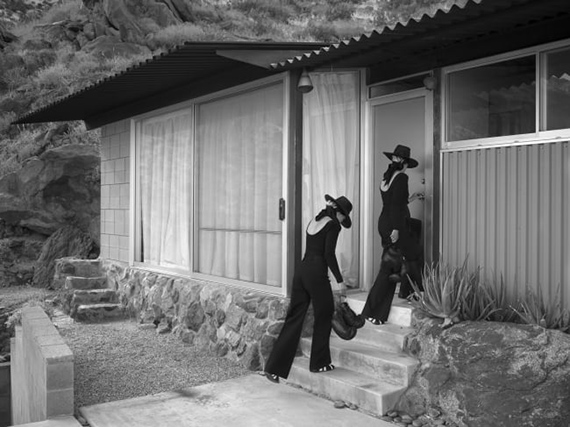
FIGHT SERIES NO. 1, 2019
Inkjet on Hahnemuhle Photo Rag Baryta paper
75 x 100 cm / framed 80 x 105 cm
Edition of 12 plus 2 artist's proofs
‘We, the photo world, need an open discussion,’ reads a statement on his website; ‘a discussion about what we want to consider photography and what not. Is the umbrella of photography large enough to invite AI images to enter – or would this be a mistake?’ Revealing his own position, he continues: ‘AI images and photography should not compete with each other in an award like this. They are different entities.’ - Boris Eldagsen
While black and white photography is still admired and applied for its classical formal qualities – the pronounced contrast it elicits, its sobriety, the purity it can afford a photographer’s chosen subject, human or otherwise – can it also blend with contemporary technologies, questions, methodologies and positions? Where monochrome images might remind us of the past, why does their appeal endure for a contemporary generation of experimental photographers, most of whom look forward just as much as they look back? And despite photography’s dubious historical claims to truth, can the camera not play as much of a role in myth-making as any AI tool? Are the lines between truth and fiction ever so clearly drawn – or does a hazier grey space straddle the certainties of black and white?
At a time when contemporary artists are experimenting with revolutionary new technologies, as well as reinvigorating black and white photographic traditions, The Ravestijn Gallery is delighted to present Monochromatic – an exhibition of works by 15 international artists, running from April 29 to June 10. Their separate applications of black and white images are manifold; in the works of Eva Stenram and KYoung black and white evokes nostalgia for the past, cut through elsewhere by both artists’ use of digital manipulation. For Robin de Puy and Michael Bailey-Gates, its inky depths give weight to the portraits of those who demand to be seen.
Black and white lends a gloomy air to the unsettling images of both Tereza Zelenkova and Asger Carlsen, enhancing a shared affinity for the macabre. For Nico Krijno, greyscale punctuates his otherwise vibrant stream of images, offering pockets of contrast to a richly-coloured universe, whilst in Pacifico Silano’s work, colour palettes derive from the archival materials he gathers and refashions – faded through handling and the passage of time. Boris Eldagsen’s The Electrician – the aforementioned work at the centre of recent debate – also features, offering an anchor for broader reflections on the real, the fictitious, the old versus the new, and the spaces that sit between black and white.
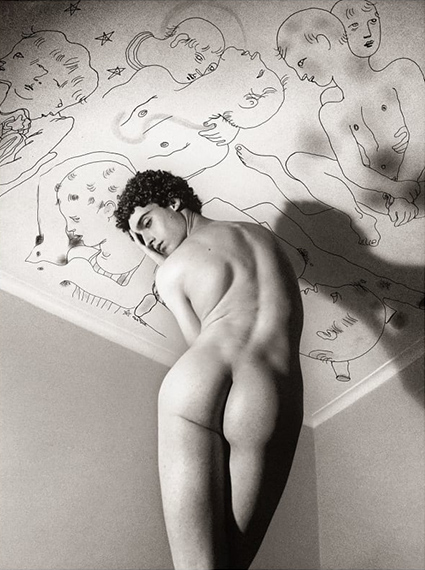
UNTITLED (COCTEAU CEILING), 2021
Framed archival pigment print with museum glass.
30,5 x 23 cm
Edition of 10 plus 2 artist's proofs
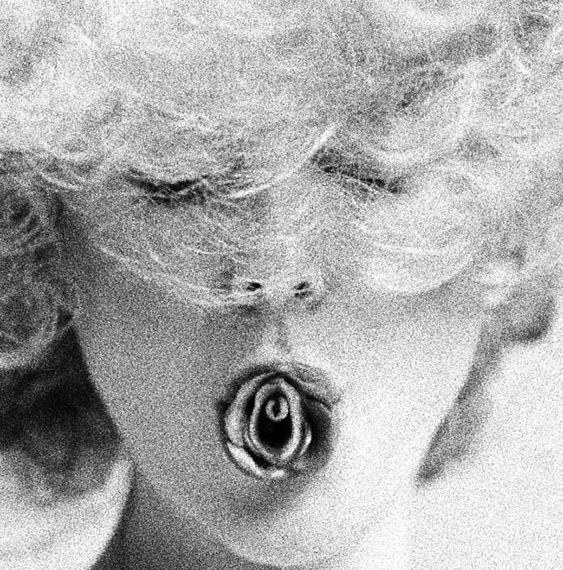
A ROSE OF FLESH, 2009
Pigment print on watercolor paper, mounted, white painted wooden frame, glass
56 x 55 cm / framed 67 x 66 cm
Edition of 6